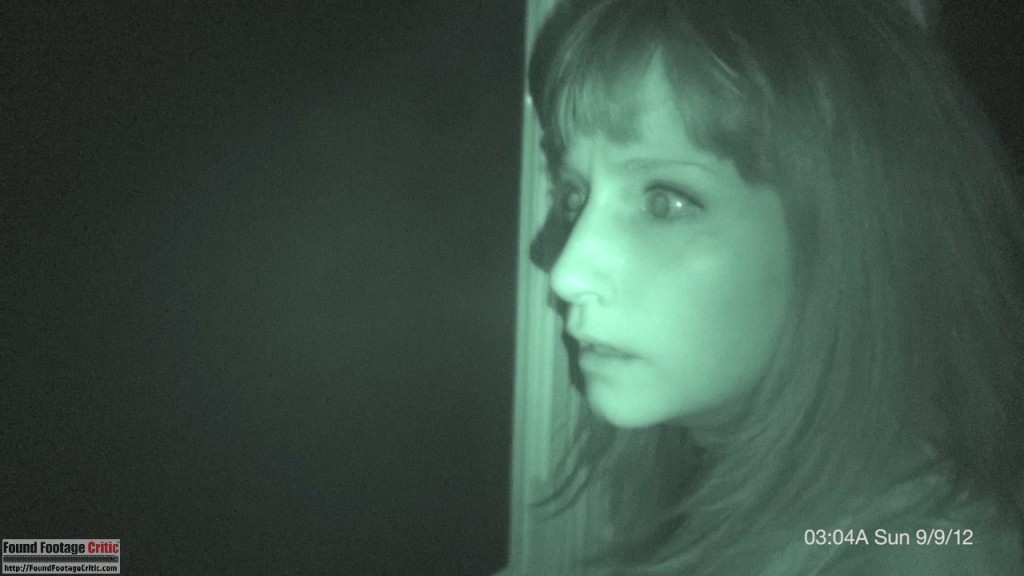As any writer will tell you, endings are hard.
I used to give Stephen King (who remains my favorite author) endless grief for his seeming inability to satisfyingly end any of his stories post, like, 1990. That is, right up until I started writing fiction myself, and finding that, holy hell, endings are the worst.
Telling a story is easy. You can pile on as much detail as you want, flowing from you freely like water. But what you never realize until the end, no matter how many times you do it, is that you eventually have to tie all of that detail you added together, in a neat little bow, and somehow condense a satisfying and narratively fitting conclusion together out of all that mess.
But the real reason that endings are such bastards isn’t in their difficulty; It’s in the fact that, no matter how good the preceding work is, even if it’s hundreds and hundreds of Grade A, primo material, a bad ending can ruin the whole thing. And this applies to everything: Movies, TV, music, you name it. Remember how no one ever shut the hell up about how good Game of Thrones was? And then remember what happened after the finale aired?
Yeah. Endings are important.
I’ve been thinking about this a lot lately, as I’ve been working on a novel for the past year or so. I’m in the final stretch, and have been having a hell of a time coming up with a satisfying resolution to the thing. As a result, I’ve sort of become hyper-sensitive to the quality of conclusions in my recent consumption of media, and it’s really made me notice just how dire the situation can be sometimes.
A little movie I stumbled onto a few days ago is the perfect example of this. As I mentioned in my piece on Savageland, I’ve been on quite the found-footage horror binge lately. There’s so many of them out there, because they’re so easy and cheap to produce, that you could watch ten a day and never run out. I’ve been browsing forums and message boards, reading recommendations, and found that Leaving DC was a relatively popular suggestion.

It took me forever to find it, because, as far as I can tell, it was made by one guy for roughly the cost of a Big Mac, and it never received a wide release. The whole thing looks as though it was shot on consumer-grade cameras (because it probably was), and has a very rough, amateur feel to it. Which, given the plot of the film, actually goes a long way towards giving it an air of authenticity that helps to disguise some of its rougher edges.
But given the low production value, I was surprised at just how effectively spooky it was. And I think that’s largely to do with how simple the film is: A man, sick of the hustle and bustle of metropolitan DC, decides to pack up and move to a house in rural West Virginia. As you’d expect, strange things begin happening around the property, and the new homeowner starts an investigation to try and get to the bottom of the harassment. There are no frills or excesses here; No flashy special effects or gimmicks. Just a good, old fashioned, slow-burn mystery.
The story is told through a series of video logs that our main character, Mark, is sending back to a mental help support group he attended in DC, where he chronicles his experiences in his new home. Mark isn’t exactly the most stable guy as it is, and a lot of the tension has to do with his heightened emotional state. He’s quirky and somewhat socially clumsy, and he speaks in such a way as to suggest that he’s in some way on the autism spectrum. His clinical nature plays into the tension of the film, as his very black-and-white worldview clashes with the increasingly supernatural occurrences in his home.

When he begins hearing strange noises outside his window, he decides to be logical and proactive: He sets up an audio recorder, as well as a trail camera, to see if he can capture any evidence of what he’s been experiencing. Every morning, as he records his daily log, he shows the camera both the audio that was recorded in the night, along with any images captured by the trail cam. It’s in these moments where the film is at its best: The horror is subtle and nuanced, with strange noises and bizarre imagery that don’t tip the story’s hand any sooner than it has to. As events begin to escalate, we’re shown increasingly weirder and more irrational proof that something beyond explanation is happening to Mark.
The film very clearly borrows heavily from films like Paranormal Activity and The Blair Witch Project, although it strays from these inspirations enough that it feels like its own unique work, without ever coming across as simply a pastiche of what came before it. The setting and the pacing are genuinely unnerving, and the cryptic threat looming over Mark’s head gets more and more interesting as the film progresses. I have to give Leaving DC a lot of credit for really sticking to the “less is more” philosophy of horror, and proving that a clever writer and director can make even a shoestring budget work in their favor.
Unfortunately, “less is more” has its limits. There’s a certain expectation in a film, even one that relies so much on the unseen, that eventually there’s going to be some payoff. Both Paranormal Activity and The Blair Witch Project both use the same slow, steady pace of escalation, increasing the scare factor bit by bit until it explodes in a frantic, violent crescendo in the third act. There’s a release of the tension, a shocking and dramatic climax that serves as the grand finale to everything that the film had previously been building up to. And an audience really needs this kind of release in order to walk away feeling satisfied about the film. Jaws would feel ultimately flat without the final confrontation with the shark, for instance. A mystery is great, but the audience needs some semblance of an answer at the end to make the journey worthwhile.
Leaving DC decidedly does not have that kind of ending. It has all the build-up and narrative beats that would suggest that it was heading in that direction. And then it just sort of… ends. No dramatic final sequence of horror, the mysterious entity revealed. Not even a glimpse of it, in fact. In the end, Mark rushes off in the dark to confront whatever it was that’s been tormenting him throughout the film, leaving his camera behind. And that’s it. No screams of terror, no action, nothing. Not even a “Mark’s body was never found” final message on screen.

To call it anticlimactic almost feels like an understatement. It’s like watching an hour-long cooking show where the host spends 55 minutes meticulously showing the audience, in great detail, how to make a cake. But then never taking it out of the oven to show the final product. It’s infuriating. I understand leaving things to the imagination. Some would argue that’s precisely what The Blair Witch Project’s ending does as well. But at least there, we at least get some suggestion of what occurred in the final act. There’s nothing of the sort in Leaving DC. Certainly no “Go stand in the corner” moment, or anything even resembling a legitimate scare.
The ending ultimately kills this film for me. I was really, truly enjoying myself up until the final five minutes, and was already planning on recommending to some of my friends. But those final moments are so disappointing, such a colossal let-down, that it deflated any and all enthusiasm that I may have had for the preceding hour. Which is a real shame, because the atmosphere of Leaving DC is legitimately impressive. It’s a methodical, patient type of creepy, on that can really get under your skin at times. It just never takes that feeling anywhere interesting.
If you can find it, Leaving DC is worth a watch if only for the entertainment value of its first two acts. And maybe I’m being too harsh on it. I’ve read plenty of testimonials from people who actually think the film is brilliant, ending and all. I suppose it depends on your own personal preference. But for me, I’d be hard pressed to say that I have any interest in seeing it again.

